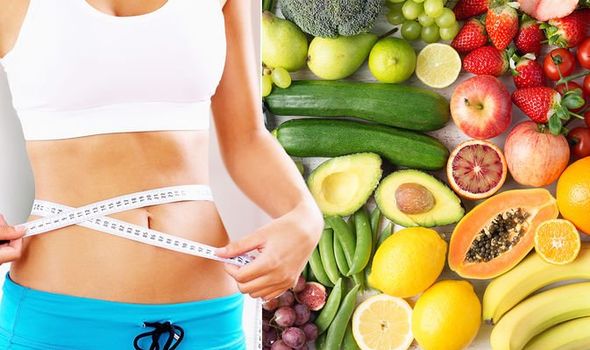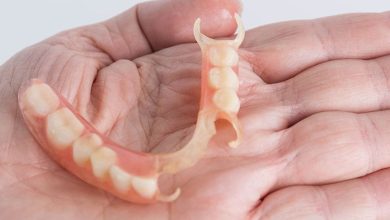

Weight loss, in the context of medicine, health, or physical fitness, refers to a reduction of the total body mass, by a mean loss of fluid, body fat (adipose tissue), or lean mass (namely bone mineral deposits, muscle, tendon, and other connective tissue)
Table of Contents
Abnormal weight loss
The weight loss does not come about because of diet, exercise or lifestyle changes. Weight loss of 10 pounds or more, or five percent of body weight, over a period of 6 to 12 months is considered “unexplained.” Unexplained weight loss can be a symptom of a serious condition or illness
10 Weight-Loss-Friendly Foods
1. Boiled Potatoes
White potatoes seem to have fallen out of favor for some reason.
However, they have several properties that make them a perfect food both for weight loss and optimal health.
They contain an incredibly diverse range of nutrients a little bit of almost everything you need.
There have even been accounts of people living on nothing but potatoes alone for extended periods of time.
They’re particularly high in potassium, a nutrient that most people don’t get enough of and that plays an important role in blood pressure control.
On a scale called the Satiety Index, which measures how filling different foods are, white, boiled potatoes scored the highest of all the foods tested.
What this means is that by eating white, boiled potatoes, you will naturally feel full and eat less of other foods.
If you allow potatoes to cool for a while after boiling, they will form high amounts of resistant starch, a fiber-like substance that has been shown to have various health benefits, including weight loss.
Sweet potatoes, turnips and other root vegetables are also excellent.
2. Tuna
Tuna is another low-calorie, high-protein food.
It’s lean fish, meaning it’s low in fat.
Tuna is popular among bodybuilders and fitness models who’re on a cut, as it’s a great way to increase protein intake while keeping total calories and fat low.
If you’re trying to emphasize protein intake, make sure to choose tuna canned in water, not oil.
3. Beans and Legumes
Some beans and other legumes can be beneficial for weight loss.
This includes lentils, black beans, kidney beans and some others.
These foods tend to be high in protein and fiber, which are two nutrients that have been shown to lead to satiety.
They also tend to contain some resistant starch.
The main problem is that a lot of people have difficulties tolerating legumes. For this reason, it’s important to prepare them properly.
4. Soups
As mentioned above, meals and diets with a low energy density tend to make people eat fewer calories.
Most foods with a low energy density are those that contain lots of water, such as vegetables and fruits.
But you can also just add water to your food, making a soup.
Some studies have shown that eating the exact same food turned into a soup rather than as solid food, makes people feel more satiated and eat significantly fewer calories.
Just make sure not to add too much fat to your soup, such as cream or coconut milk, as this can significantly increase its calorie content.
5. Avocados
Avocados are a unique fruit.
While most fruits are high in carbs, avocados are loaded with healthy fats.
They’re particularly high in monounsaturated oleic acid, the same type of fat found in olive oil.
Despite being mostly fat, avocados also contain a lot of water and fiber, making them less energy-dense than you may think.
What’s more, they’re a perfect addition to vegetable salads, Their fat content can increase carotenoid antioxidant absorption from the vegetables 2.6- to 15-fold.
They also contain many important nutrients, including fiber and potassium.
6. Apple Cider Vinegar
Apple cider vinegar is incredibly popular in the natural health community.
It’s often used in condiments like dressings or vinaigrettes, and some people even dilute it in water and drink it.
Several human-based studies suggest that apple cider vinegar can be useful for weight loss.
Taking vinegar at the same time as a high-carb meal can increase feelings of fullness and make people eat 200–275 fewer calories for the rest of the day.
One 12-week study in obese individuals also showed that 15 or 30 ml of vinegar per day caused weight loss of 2.6–3.7 pounds, or 1.2–1.7 kilograms.
Vinegar has also been shown to reduce blood sugar spikes after meals, which may have various beneficial health effects in the long term.
7. Nuts
Despite being high in fat, nuts are not as fattening as you would expect.
They’re an excellent snack, containing balanced amounts of protein, fiber and healthy fats.
Studies have shown that eating nuts can improve metabolic health and even promote weight loss.
What’s more, population studies have shown that people who eat nuts tend to be healthier and leaner than those who don’t.
Just make sure not to go overboard, as they’re still fairly high in calories. If you tend to binge and eat massive amounts of nuts, it may be best to avoid them.
8. Chili Pepper
Eating chili peppers may be useful on a weight loss diet.
They contain capsaicin, a substance which has been shown to reduce appetite and increase fat burning in some studies.
This substance is even sold in supplement form and a common ingredient in many commercial weight loss supplements.
One study showed that eating 1 gram of red chili pepper reduced appetite and increased fat burning in people who didn’t regularly eat peppers.
However, there was no effect in people who were accustomed to eating spicy food, indicating that a certain level of tolerance can build up.
9. Grapefruit
One fruit that deserves to be highlighted is grapefruit. Its effects on weight control have been studied directly.
In a 12-week study in 91 obese individuals, eating half a fresh grapefruit before meals led to weight loss of 3.5 pounds (1.6 kg).
The grapefruit group also had reduced insulin resistance, a metabolic abnormality that is implicated in various chronic diseases.
Therefore, eating half a grapefruit about half an hour before some of your daily meals may help you feel more satiated and eat fewer overall calories.
10. Coconut Oil
Coconut oil is high in fatty acids of a medium length, called medium-chain triglycerides (MCTs).
These fatty acids have been shown to boost satiety better than other fats and increase the number of calories burned.
What’s more, two studies — one in women and the other in men — showed that coconut oil reduced amounts of belly fat.
Of course, coconut oil still contains calories, so adding it on top of what you’re already eating is a bad idea.
It’s not about adding coconut oil to your diet but about replacing some of your other cooking fats with coconut oil.
However, studies show that coconut oil is less satiating than MCT oil — a supplement that contains much higher numbers of medium-chain triglycerides.
For any important information please contact us Email GadgetsNg info@gadgetsng.com
[Button id="1"]




What’s up, of course this piece of writing is in fact good and
I have learned lot of things from it on the topic of blogging.
thanks.
Hey I know this is off topic but I was wondering if you knew of any widgets I could add to my blog
that automatically tweet my newest twitter updates.
I’ve been looking for a plug-in like this for quite some time and was hoping maybe you would have some experience with something
like this. Please let me know if you run into anything.
I truly enjoy reading your blog and I look forward to your new updates.
This is really interesting, You are a very skilled
blogger. I’ve joined your rss feed and look forward to seeking more of your wonderful post.
Also, I have shared your website in my social networks!
What’s up, its nice piece of writing on the topic of media print, we all
know media is a wonderful source of information.
It’s perfect time to make a few plans for the future and it’s time to be happy.
I have read this publish and if I could I want to suggest
you few attention-grabbing issues or tips. Maybe you could write subsequent articles regarding this article.
I wish to read even more issues approximately it!
Remarkable issues here. I am very glad to peer your article.
Thank you a lot and I’m having a look ahead to contact you.
Will you please drop me a mail?
Hey! I know this is somewhat off topic but I was wondering if you
knew where I could locate a captcha plugin for my comment form?
I’m using the same blog platform as yours and I’m having
problems finding one? Thanks a lot!
Remarkable issues here. I’m very glad to see your post. Thank you so much and I’m
having a look forward to contact you. Will you please drop me a e-mail?
It’s an awesome article designed for all the internet visitors;
they will take advantage from it I am sure.
I used to be able to find good advice from your articles.
Hello my loved one! I want to say that this post is awesome, nice written and include almost
all important infos. I’d like to peer more posts like this .
Wow, this article is nice, my younger sister is analyzing such things, thus I am going to inform her.
Hello! I simply want to offer you a big thumbs up for your excellent info you have got right here on this post.
I’ll be returning to your website for more soon.
Spot on with this write-up, I absolutely feel this site needs a lot more attention. I’ll probably be back again to
read through more, thanks for the information!
My brother suggested I would possibly like this web site.
He used to be totally right. This post actually made my day.
You can not imagine simply how much time I had spent
for this information! Thanks!
Hi there, I found your web site by means of Google while looking for a similar subject, your website came up, it
appears to be like good. I have bookmarked it in my google bookmarks.
Hello there, simply was alert to your weblog through Google, and
located that it is really informative. I am going to watch out for brussels.
I will appreciate in case you continue this in future. A lot of
folks will likely be benefited from your writing. Cheers!
Hey I know this is off topic but I was wondering if you
knew of any widgets I could add to my blog that automatically tweet my newest twitter updates.
I’ve been looking for a plug-in like this for quite some time and was hoping maybe
you would have some experience with something like this.
Please let me know if you run into anything. I truly enjoy reading your blog and I look
forward to your new updates.
If some one desires expert view regarding running a blog after that i advise him/her to go to
see this weblog, Keep up the nice work.
Definitely imagine that that you said. Your favourite justification appeared to be
at the web the easiest factor to bear in mind of.
I say to you, I definitely get irked whilst people consider concerns that they plainly do
not recognise about. You controlled to hit the nail upon the highest as neatly as defined out the whole thing without
having side effect , other people could take a signal. Will probably be
again to get more. Thank you
Excellent Ьlⲟg here! Also yoour website loads up fast! What hosst are
you using? Can I get our affiliate link too yοur host?
І wish my site loaded up as quickly as youes lol
Feel free to visit my webpage :: seal online – mysealonline.com
–
They hzve to make two combinations ffrom them to beat the dealer’s hand.
my web page 우리카지노 계열
Hey there excellent website! Does running a blog like this take a lot of work?
I have virtually no expertise in computer programming
but I was hoping to start my own blog in the near future. Anyways, if you have any recommendations or techniques for new blog owners please share.
I know this is off topic nevertheless I just wanted to ask.
Appreciate it!
Awesome! Its really amazing article, I have got much clear idea
on the topic of from this post.
It is the best time to make a few plans for the longer term and it is time to be happy.
I’ve learn this submit and if I could I want to recommend
you some fascinating issues or advice. Maybe you can write
next articles regarding this article. I wish to learn more issues about it!
There’s certainly a great deal to find out about this topic.
I love all the points you made.
Definitely believe that which you said. Your favorite reason appeared to be on the web the simplest thing to be aware of.
I say to you, I definitely get irked while people consider worries that they plainly don’t
know about. You managed to hit the nail upon the top and defined out the
whole thing without having side-effects , people could take a signal.
Will probably be back to get more. Thanks
Hi there, everything is going perfectly here and ofcourse
every one is sharing facts, that’s genuinely good, keep up
writing.
Hello, I enjoy reading through your article.
I like to write a little comment to support you.
I am not sure where you’re getting your info, but good topic.
I needs to spend some time learning more or understanding more.
Thanks for excellent info I was looking for this information for my
mission.
I’m gone to tell my little brother, that he should also pay a
quick visit this webpage on regular basis to obtain updated from hottest information.
I’m curious to find out what blog platform you’re using?
I’m having some minor security issues with my latest website and I’d like to find something more safe.
Do you have any solutions?
Howdy I am so glad I found your web site, I really found you by accident, while
I was browsing on Bing for something else, Anyways I am here now and would
just like to say thanks a lot for a marvelous post and a all round enjoyable blog (I also love the theme/design), I don’t have time to
look over it all at the minute but I have book-marked
it and also added your RSS feeds, so when I have time I will be
back to read more, Please do keep up the fantastic job.
I like it when people come together and share thoughts.
Great site, stick with it!
At this time I am ready to do my breakfast, after
having my breakfast coming over again to read more news.
Keep this going please, great job!
My brother suggested I would possibly like this website.
He used to be totally right. This post truly made my day.
You can not believe simply how so much time I had spent for this
information! Thank you!
Hi there I am so happy I found your weblog, I really found you by error, while
I was researching on Bing for something else, Nonetheless I
am here now and would just like to say kudos for a marvelous post and a
all round thrilling blog (I also love the theme/design), I don’t have time to
browse it all at the moment but I have saved it and also added
your RSS feeds, so when I have time I will be back to
read more, Please do keep up the great job.
I’m not that much of a online reader to be honest
but your blogs really nice, keep it up! I’ll go ahead and bookmark
your website to come back in the future. All the best
If you would like to take much from this post then you have
to apply these strategies to your won website.
Hey there! This is kind of off topic but I need some help from an established
blog. Is it tough to set up your own blog? I’m not
very techincal but I can figure things out pretty quick.
I’m thinking about making my own but I’m not sure where to begin. Do you have any ideas or suggestions?
With thanks
Article writing is also a excitement, if you be acquainted
with afterward you can write or else it is complex to write.
Greetings! I know this is kind of off topic but I
was wondering which blog platform are you using for
this site? I’m getting fed up of WordPress because I’ve had issues with hackers and I’m looking
at alternatives for another platform. I would be great if
you could point me in the direction of a good platform.
If some one desires to be updated with latest technologies then he
must be pay a quick visit this web page and be up to date daily.
Hi there! I know this is kinda off topic but I was wondering if you knew where I could find a captcha plugin for my comment form?
I’m using the same blog platform as yours and I’m having difficulty finding one?
Thanks a lot!
Appreciation to my father who told me regarding this webpage, this blog
is truly remarkable.
Hi, i believe that i saw you visited my website thus i
came to go back the prefer?.I am trying to in finding things to enhance my site!I guess its ok to make use of a few of your
ideas!!
I visited various websites except the audio feature for audio songs existing
at this web site is actually excellent.
Great blog here! Also your site loads up very fast! What web host are you using?
Can I get your affiliate link to your host? I wish my web site loaded up as quickly as yours
lol
Heya i’m for the first time here. I found this board and I find It truly useful & it
helped me out a lot. I hope to give something back and aid others like
you aided me.
Does your blog have a contact page? I’m having a tough
time locating it but, I’d like to shoot you an email.
I’ve got some suggestions for your blog you might
be interested in hearing. Either way, great blog and I look
forward to seeing it grow over time.
There’s certainly a lot to learn about this issue.
I love all the points you made.
Hi there just wanted to give you a brief
heads up and let you know a few of the pictures
aren’t loading correctly. I’m not sure why but I think its a
linking issue. I’ve tried it in two different web browsers
and both show the same results.
Currently it appears like Drupal is the preferred blogging platform out there right now.
(from what I’ve read) Is that what you are using on your blog?
Magnificent beat ! I would like to apprentice while you amend your web site, how could i subscribe for a blog site?
The account helped me a acceptable deal. I had been a little bit acquainted of this your broadcast provided bright clear concept
Hello There. I found your weblog the use of msn. That is a really neatly written article.
I’ll make sure to bookmark it and come back to
read more of your useful info. Thanks for the post.
I’ll certainly return.
Thankfulness to my father who told me regarding this web site, this blog
is truly amazing.
I have read so many content regarding the blogger lovers but this post is in fact a fastidious
piece of writing, keep it up.
Hi I am so excited I found your site, I really found you by accident, while I was
searching on Google for something else, Nonetheless I am
here now and would just like to say thanks for a tremendous post and a all round entertaining blog (I also love the
theme/design), I don’t have time to read it all
at the minute but I have bookmarked it and also included your RSS feeds,
so when I have time I will be back to read much more, Please do keep up the superb job.
Thanks for any other informative blog. The place else could I
get that type of info written in such a perfect approach?
I’ve a venture that I am just now working on, and
I’ve been at the glance out for such info.
Hello there, just became aware of your blog through Google, and found that
it is truly informative. I am gonna watch out for brussels.
I’ll appreciate if you continue this in future. Numerous people will be benefited from your
writing. Cheers!
Wow, awesome blog layout! How long have you been blogging for?
you made blogging look easy. The overall look of your web site is fantastic, as well as the content!
I know this if off topic but I’m looking into starting my own blog and was curious what all is
required to get set up? I’m assuming having a blog like
yours would cost a pretty penny? I’m not very internet smart so I’m
not 100% certain. Any suggestions or advice would be greatly appreciated.
Cheers
These are actually impressive ideas in about blogging. You have touched some pleasant points here.
Any way keep up wrinting.
Admiring the persistence you put into your website and in depth information you provide.
It’s nice to come across a blog every once in a while that isn’t the same
out of date rehashed information. Fantastic read! I’ve bookmarked your site and I’m including your RSS feeds to my Google account.
Thanks for sharing your thoughts about forum lendir tante.
Regards
Wow, this article is good, my younger sister is analyzing these things, thus I am going to let know
her.
Yes! Finally something about forum igo.
I am truly grateful to the owner of this website who
has shared this fantastic article at at this time.
My spouse and I stumbled over here by a different website and thought I
should check things out. I like what I see so i am
just following you. Look forward to exploring your web page again.
Hi! I could have sworn I’ve been to this website before but after browsing through some of
the post I realized it’s new to me. Anyways, I’m definitely glad I
found it and I’ll be bookmarking and checking back often!
Aw, this was an extremely nice post. Spending some time and actual
effort to produce a superb article… but what can I say… I procrastinate a
whole lot and never manage to get anything done.
You really make it seem really easy along with your presentation however I
to find this matter to be really something which I believe I’d never understand.
It kind of feels too complex and very broad for me.
I am looking ahead to your next submit, I’ll try to get the grasp of it!
Hello, i read your blog occasionally and i own a similar one and i was just wondering if you get
a lot of spam responses? If so how do you prevent it, any plugin or anything you can suggest?
I get so much lately it’s driving me crazy so any help is
very much appreciated.
Can you tell us more about this? I’d care to find out some additional information.
After I initially left a comment I appear to have
clicked the -Notify me when new comments are added- checkbox and now each time a
comment is added I receive 4 emails with the same
comment. Perhaps there is a way you are able to remove me from that service?
Thanks!